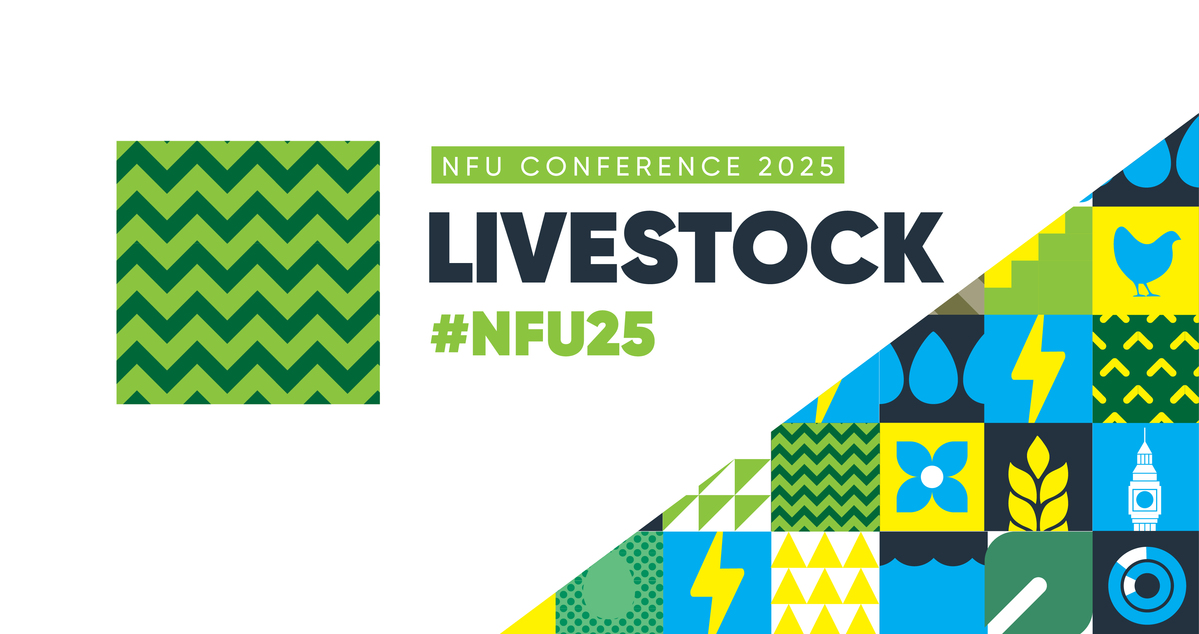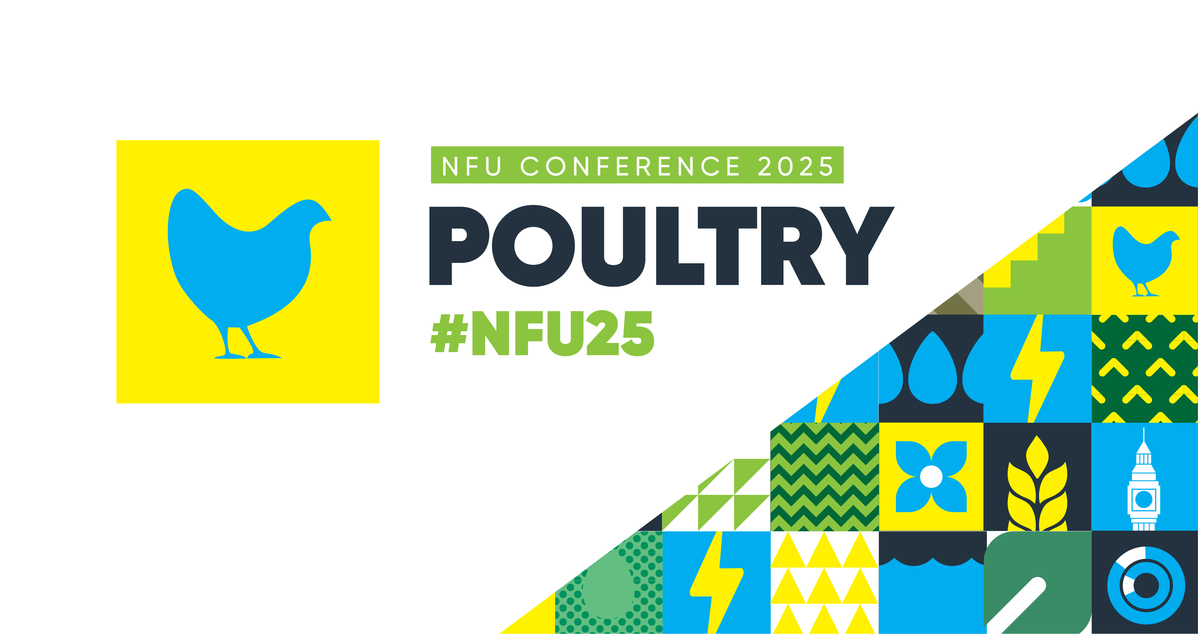Chaired by journalist Olivia Cooper, the panel of NFU Dairy Board chair Paul Tompkins, Dairy Board Appointee Amy Hayes and National Dairy Board Vice chair Ian Harvey offered a wide-ranging examination of the industry, focusing on four main themes.
Politics and government
The panel began by confronting the ‘elephant in the room’ – the government’s Inheritance Tax proposals which have created so much anger and turmoil across the industry.
Amy, a fifth-generation farmer, highlighted the potential impact they would have on the future of traditional family farms, and Ian worried about the effect upon tenancies, saying that larger landowners could be forced to sell off tenanted farms to meet their obligations, which could result in multi-generational livelihoods being lost.
He added that farmers trying to save their farms could decide that cows were the easiest asset to sell, forcing some to leave the dairy sector altogether, and spoke for all when he stated: “The knock-on effect has been grossly underestimated.”
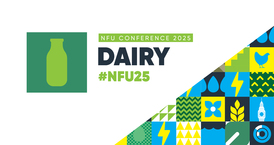
Commenting on the enormous amount of work that the NFU has done on the issue, NFU Dairy Board chair Paul Tompkins said: “The breadth of work that we have to get involved in is enormous. The only way we can challenge those, the only way we can influence other people is if we are united and farmers have to be united and there is no better way, there is no better format, there is no better organisation that can do that than the National Farmers’ Union.”
He went on to say that we would continue campaigning in a coherent and proactive sensible way. But he stressed the board was also concentrating upon other pressing issues, and driving forward the dairy board priority workstreams. “While inheritance tax is taking up a lot of our emotional capabilities at the moment, from a Defra perspective, it’s taking up a very small amount of their bandwidth and I need to be equally focussed on all of the other things that they are touching on.”
Dairy had made great strides in improving its carbon footprint through productivity gains, he added, but tight margins meant that farmers could not shoulder the burden of future investment alone, a point the NFU would continue to drive home. The organic sector was specifically highlighted as an important part of the sector’s sustainability journey.
Supply chain engagement
Discussing processor acquisitions, the panel welcomed the significant investment into the industry but feared that while this money increased the processing capacity, the milk pool was often still an afterthought, which caused friction.
Paul said that consolidation and investment could be seen as a good thing but the lack of competition for milk was bad for producers. Ian added: “In the longer term we want more processing capacity. We want our processors to add value effectively, cheaply and with innovation.”
Addressing the Fair Dealings Obligations (Milk) Regulations (FDOM) Ian said that the changes should improve relationships between farmers and processors across the supply chain.
Paul flagged the ability to negotiate on pricing and changing contracts:
“Too often regulations are seen as a silver bullet, but this is a significant step in the right direction. Farmers will be in a much better place to negotiate.”
The NFU Dairy Board was also taking the farm assurance review extremely seriously, he added, and was working through the recommendations to see where they affected the sector and where there could be opportunities for dairy.
“I’m always hammering the drum for the next generation – there’s a lot of talent coming through. People have amazing ideas and we haven’t seen the half of it yet.”
NFU Dairy Board appointee Amy Hayes
Regulation, compliance and investment
Paul warned that water quality would remain an important issue, with many of the recent intake of MPs elected on a specific mandate to make improvements. It was a complicated issue with multiple causes and action needed to be taken at a catchment level rather than nationally mandated, he said, as the issues are often individual to each area.
He added that infrastructure for storing nutrients comes at a cost and infrastructure grant aid had been put on hold. Amy added: “The shame is that a lot of people do want to do something and make a change, but the support is not there. The costs of this to a business are massive but schemes were hard to access and that brings frustrations of their own. It’s not that people don’t want to be compliant – the intention is there.”
Ian added that tenant farmers in particular found financing slurry management a struggle, as it was a huge financial commitment at a time when the rug could be pulled from under tenants at a moment’s notice.
The panel also urged businesses to take advantage of whatever grant support they were eligible for under SFI as it evolved, as any unused budget would be swiftly taken away and focused elsewhere.
Disease management
Paul warned that although Defra minister Daniel Zeichner stated bTB was his priority, vaccines in cattle were in the same policy place as on his first day in office, and any roll-out was still years away.
Wildlife controls over the last 8-10 years had massively improved the position on bTB, he said, and farmers would now have to work hard with all other measures available to ensure the position did not slip.
The NFU was striving to take a more proactive approach to disease control, he added, highlighting that swiftly raising the alarm and encouraging industrywide responses to the threat of bluetongue and the recent outbreak of foot-and-mouth disease in Germany had been effective. However, the illegal transportation of meat across borders was a major threat and had to be met with a serious response to act as a deterrent.
The event concluded with praise for the success of the Dairy Export Strategy in attracting international awareness of the sector and calls for the industry to unite to promote its image more widely. Paul highlighted the three packed halls at Dairy-Tech last month as an indication that the agriculture industry had high confidence in the future of British dairy, and there was a great deal of innovation still to come.
Amy concluded: “I’m always hammering the drum for the next generation – there’s a lot of talent coming through. People have amazing ideas and we haven’t seen the half of it yet.”
Meet the speakers from this session
Olivia Cooper
Journalist and PR consultant
She is former chair of the British guild of agricultural journalists and is an accredited CIPR practitioner.
Editor of British dairying magazine, Olivia is also a regular contributor to Farmers Weekly, Farmers Guardian and other specialist publications.
Her PR and journalism business, Agri-hub, specialises in rural and agricultural business promotion.
Ian Harvey
NFU National Dairy Board vice chair | Regional Dairy Board chair, south
The cows are a mixture of Holstein-Friesians and pedigree Ayrshires.
Ian is interested in improving the environment impact of the industry and has recently embarked on a river fencing scheme to reduce potential erosion and water contamination. The farm has since decided to diversify their water source by investing in a pump to drive water from a nearby watercourse for use on farm in an environmentally friendly and cost effective effort to reduce water costs.
Ian currently sits on the NFU’s Dairy Environmental Issues Group and is also the finance director for DCD (Dairy Crest Direct).
A strong advocate of dairy producer organisations, Ian believes in the importance of farmer cooperation to improve the dairy supply chain and is keen to work with the NFU Dairy Board to promote good farmer-processor relations.
Amy Hayes
NFU Dairy Board appointee, Midlands
Alongside her family, Amy manages the 600-cow dairy herd on a New Zealand-style grazing and spring calving system.
As well as her farm role, Amy is also the founder of Pastures Green Communications Ltd, helping rural and agricultural businesses promote themselves and tell their story online. She helps businesses with all areas of their marketing strategy and specialises in social media and influencer marketing within the industry.
Amy is passionate about communicating a positive message for the dairy industry online and spends much of her time sharing her farming story on social media. She has over 18,000 followers and enjoys communicating the farming story to consumers, next generation farmers and school children.
Paul Tompkins
NFU National Dairy Board chair
Not from a farming background, Paul worked in the financial sector before meeting his wife and joining the family dairy business.
Paul joined the National Dairy Board in 2017 as an appointee before being elected as the North East representative. He has served nearly four years as Vice chair in total.
Paul is enthusiastic about educating people of all ages about dairy farming and is keen to continue developing relationships with milk processors and other farmer representatives to ensure a joined-up industry approach to future farm policy.
Paul believes a fair and transparent supply chain is critical if dairy farmers are to meet the demands of a quickly changing society. He also works hard to ensure the dairy sector is represented throughout the supply chain and at government level so dairy farmers can make the most of future opportunities and have a bright and prosperous future.
Jonathan Wilkinson
NFU Cymru Milk Board chair
Jon has had a long involvement with NFU Cymru and is currently its Dairy Board chair, having previously been Montgomeryshire County chairman for three years. He is also a County councillor taking particular interest in the running of the Powys County council farms.
There are currently 470 milking cows at Dyffryn milking three times a day supplying milk to Muller, with plans to increase numbers to around 600 cows over the next two years.
With two daughters both perusing careers in medicine Jon was keen to ensure that the farm could work for them in the future. With this in mind he now works closely with a progressive local farming family who are helping to take the business forwards.
More from our NFU25 fringes
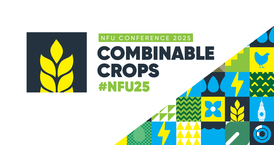

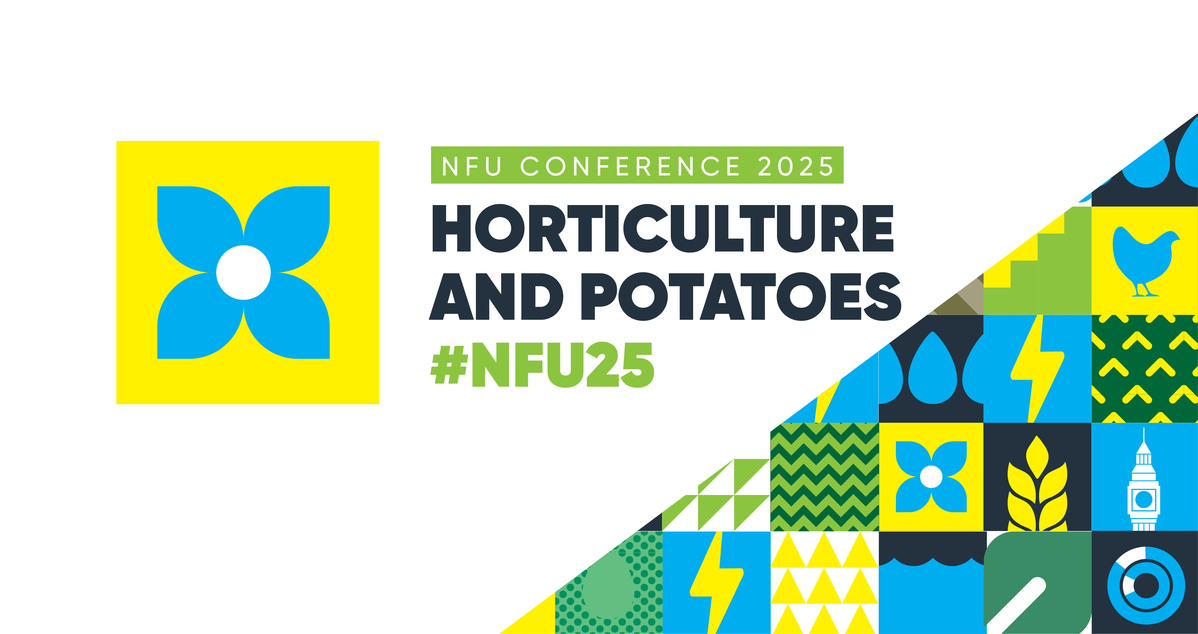
Watch again – NFU25: Horticulture and potatoes fringe session
